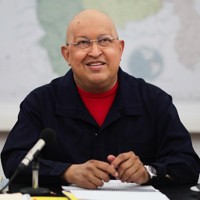When Venezuelans went to the polls for regional elections last weekend, they knew the future of the country, as they’ve come to know it, was hanging on a fraying thread. President Hugo Chávez, the man with the outsize personality who has dominated Venezuelan politics since before the turn of the 21st century, had just had his fourth cancer surgery, and the outlook for a full recovery looked rather grim. Chávez was not on the ballot, but his condition was the overarching concern for millions of voters.
By his own dramatic, emotional admission, Chávez may not be able to return to power. That brings up the question that Chavistas had tried to avoid answering for years: Who will take charge after Chávez, whose overpowering charisma has made even his most fiery followers pale by comparison, is gone?
Chávez won re-election to yet another term in October. He is scheduled to be inaugurated on Jan. 10, but if he is unable to take office on that date, the constitution dictates that new elections be held within 30 days.

